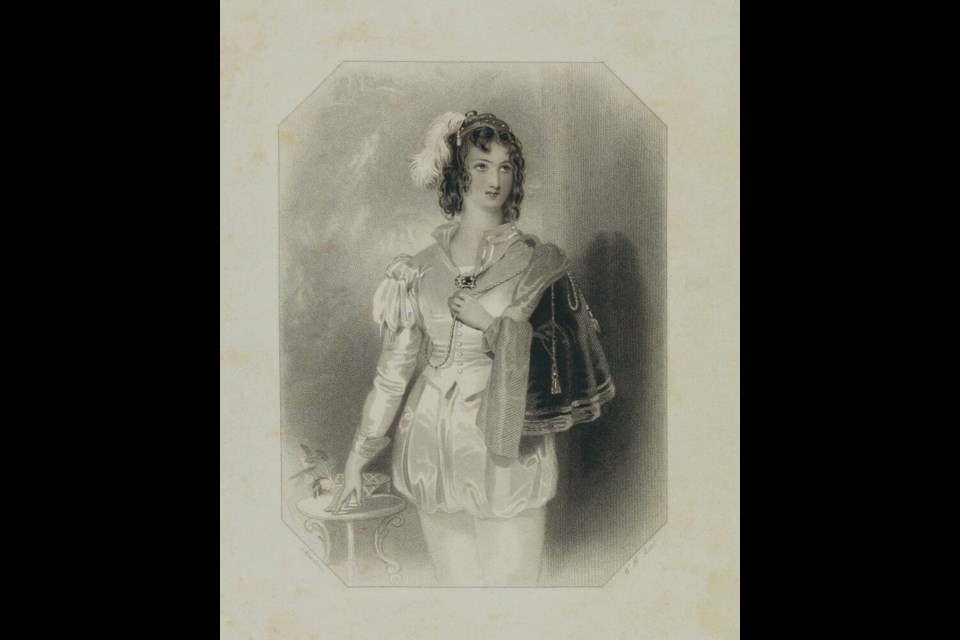Now that the fog of anti-intellectualism that runs rampant in the United States of Dysfunction has crept up over the border at least as far as Surrey, the folks who are fretting about the influence of authors like John Steinbeck, Harper Lee and others might want to take a closer look at Shakespeare.
The novels Of Mice and Men by Steinbeck (1937) and To Kill a Mockingbird (1960) by Lee display how different characters go through various issues and hardships our society still has not resolved in 2023.
Apparently, issues including racial discrimination, innocence, disabilities, loneliness and inequality because of gender or social status are more insidious and likely to sully young minds than the Bard’s stuff.
So let’s take a closer look at the Shakespearean themes that, despite various forms of opposition, have survived and been celebrated as some of the finest literature in the English language since the very late 1600s.
Of the thirty-eight surviving plays attributed to Shakespeare, about a fifth involve cross-dressing.
In seven of those plays, female characters disguise themselves as young men. In three — The Merchant of Venice, As You Like It and Twelfth Night — cross-dressing is central to the plot.
In the 15 plays classified as tragedies, there are 13 definite and eight possible suicides.
Romeo and Juliet has been a frequent target of censorship in some U.S. public schools because it is seen to encourage teen sex and rejection of parental authority.
The themes of Macbeth’s “outer” world involve violence and treachery while Macbeth’s “inner” world of witchcraft and prophecy is driven by ambition and contradictory moral reasoning. His outer or “real” world is one of brutal assassination and murder.
In Othello, acts of treachery and betrayal have dramatic significance inasmuch as appearance does not always portray reality.
Hamlet has often been banned or at least challenged by parents in some U.S. schools. Objections have included Ophelia’s suicide and Hamlet’s madness, real or not.
By the end of the tragedy, Hamlet has caused the deaths of Polonius, Laertes, Claudius, and Rosencrantz and Guildenstern, two acquaintances from childhood.
Hamlet is also indirectly involved in the deaths of his love Ophelia (drowning) and of his mother, Gertrude (mistakenly poisoned by Claudius).
Titus Andronicus is Shakespeare’s bloodiest play — the body count reaches 14. Rounding out the top-three deadliest plays are Richard III (11 deaths) and King Lear (10 deaths).
Julius Caesar is about political treachery and a violent public assassination.
The Merchant of Venice has often been rightly accused of being antisemitic. Again, its lead character is a woman dressed as and playing the role of a man.
In 1986, the Ontario Ministry of Education was asked to decide whether the play was indeed antisemitic. It was banned from Grade 9 classrooms in Kitchener-Waterloo.
Yet Shakespeare survives in our schools because, like all truly great literature, it reflects the foolishness and the faults in ourselves.
Great literature often reflects what is wrong in a society in the hope that its mirror may help us overcome those mistakes and rise above them.
Which brings us back to authors like Steinbeck and Lee, whose novels have caused so much tearing of hair and rending of garments.
The Surrey School District removed Of Mice and Men and To Kill a Mockingbird, among other books, from its recommended reading list for students in Grade 10 or higher because of concerns over some of the content.
Of Mice and Men is a parable about what it means to be human.
Steinbeck’s story of his two main characters, George and Lennie, and their ambition of owning their own ranch, and the obstacles that stand in the way of that ambition, reveal the nature of dreams, dignity, loneliness and sacrifice, very human, down-to earth aspects of human nature.
These are ordinary people, far from Shakespeare’s kings and nobles who are far from the experiences of a 15-year-old in a Grade 10 literature class.
Lee’s novel is about the way ignorance breeds fear, which, in turn, breeds prejudice. Lee is able to explore fear in the novel most effectively by describing for us how individual characters are affected by it.
As leaders in a multicultural community, Surrey School District should be able to relate.
Maybe the powers that be in Surrey should consider the words of Russian novelist Boris Pasternak, author of Dr. Zhivago: “Literature is the art of discovering something extraordinary about ordinary people, and saying, with ordinary words something extraordinary.”
Geoff Johnson is a former superintendent of schools.
>>> To comment on this article, write a letter to the editor: [email protected]



